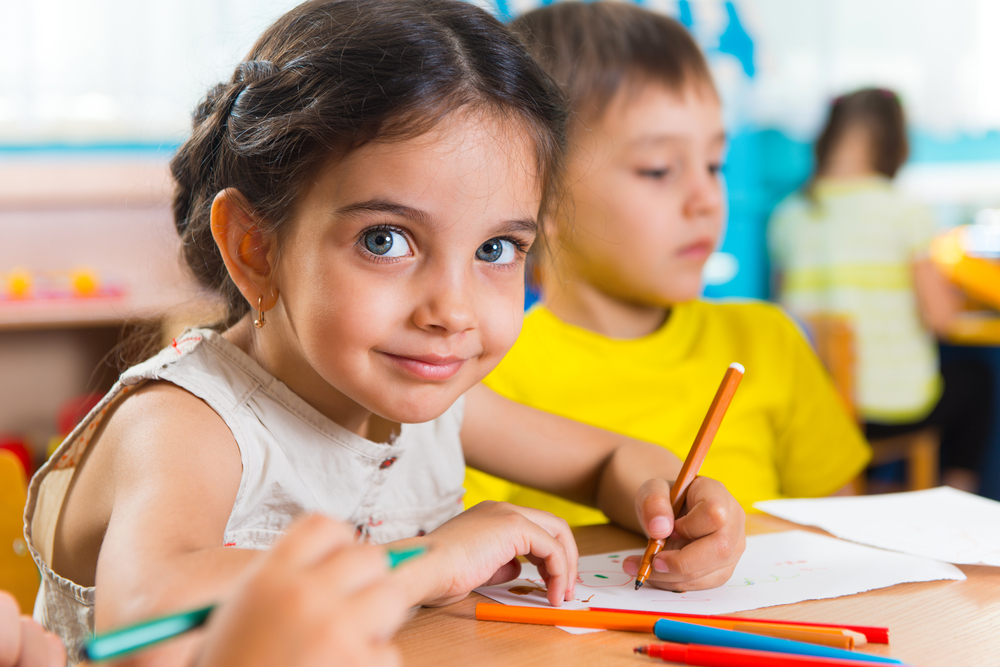Kindergarten readiness is often misunderstood. When most parents think of it, they usually focus on the academic skills of a child. Of course, this is important. However, there are many other skills children need to have learned to excel in kindergarten.
For example, can your child play well with other children? Are they able to go to the bathroom by themselves? When your child needs help, are they confident enough to ask for it?
These are just a few questions to ask yourself as you assess your child’s readiness to enter big school.
Don’t worry; if you’re unclear on what to expect and how best to prepare for the big day, we’ve written this article just for you!
Kindergarten Readiness: Skills
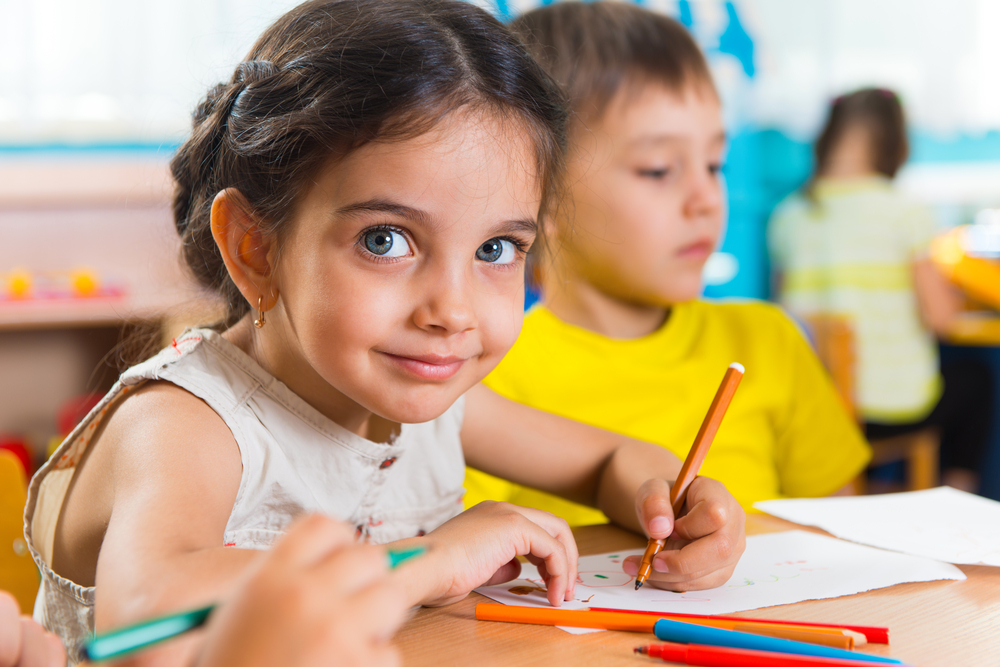
There are various skills that children will need to have at the beginning of kindergarten for them to thrive in their new environment.
Keep in mind, however, that all children grow and learn at different rates. If your child isn’t regularly doing all of the things listed below, it’s OK!
These skills are simply a guideline so that you know what to work on to prepare your child for kindergarten. Let’s take a look!
Language And Literacy Skills
- Able to speak using complete sentences
- Can follow directions with two or more steps
- Can name and recognize some uppercase and lowercase letters
- Pretend reads books
- Able to include two or more ideas in sentences
- Can recognize their name in print and attempt to write it
- Able to repeat a familiar nursery rhyme, poem, or song by heart
- Recognizes two rhyming words (e.g., pan and man)
- Enjoys listening to stories
- Able to make basic predictions about a story being narrated
- Can express needs and wants through words
- Able to identify familiar logos and signs
Math Skills
- Can count to 10
- Able to classify items by size, color, pattern, or shape
- Familiar with basic shapes (e.g., circle, triangle, square, etc.)
- Understands less than or more than
- Able to name the colors in a box of eight crayons
Gross And Fine Motor Skills
- Can run, jump, hop (with one and two feet)
- Able to bounce a ball and attempt to catch it
- Can climb stairs
- Can comfortably grip a pencil/marker/crayon
- Able to use scissors
Social, Emotional, And Behavioral Skills
- Can peacefully separate from parents
- Able to play with peers
- Shows respect and kindness to others
- Can use the bathroom on their own
- Can pay attention to a task for at least five minutes without interrupting or getting agitated
- Able to clean up after themselves
- Can say their first and last name as well as their age
Common Challenges Faced By Children
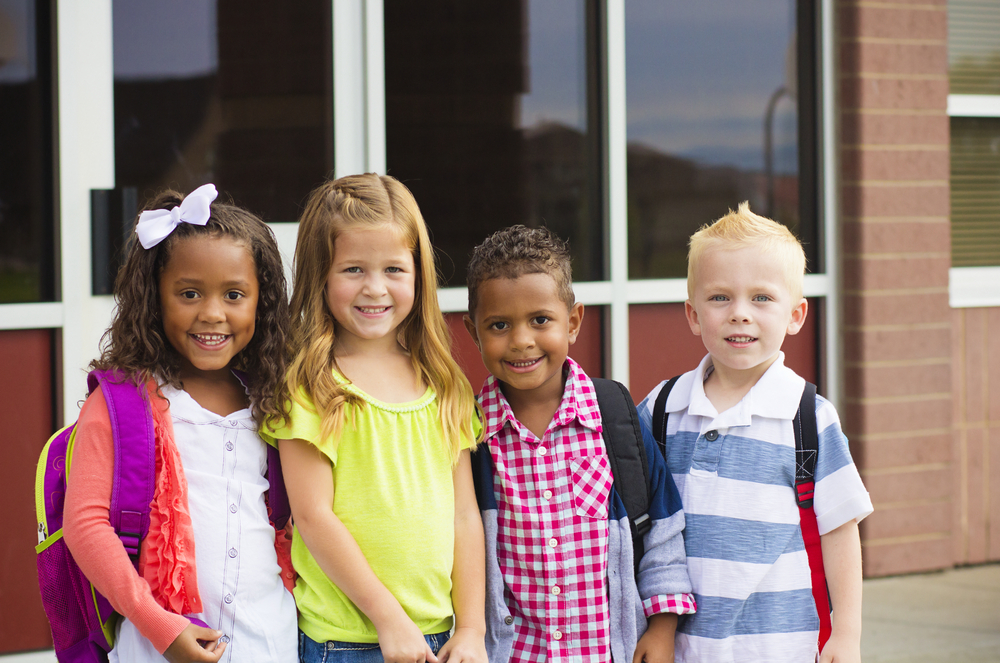
While the aim is to prepare your child as best as you can for their first day in big school, it’s important to note that it’s natural for there to be difficulties.
Here are few common challenges your child might experience as they start kindergarten:
- Separation from parents
- Worry over how to make friends
- Anxiety about succeeding in “real school”
- Transitioning from one activity to another
- Spending a full day in school
- Paying attention for long periods of time
It’s perfectly normal for kids (and adults) to be strong in some areas and weak in others. It’s called being a human!
So, if your child is struggling with a few of the things we’ve mentioned, there’s often no need to worry. With a little help from you, they’ll be a bit more ready to tackle their first day!
How To Encourage Kindergarten Readiness
1) Plan A School Visit
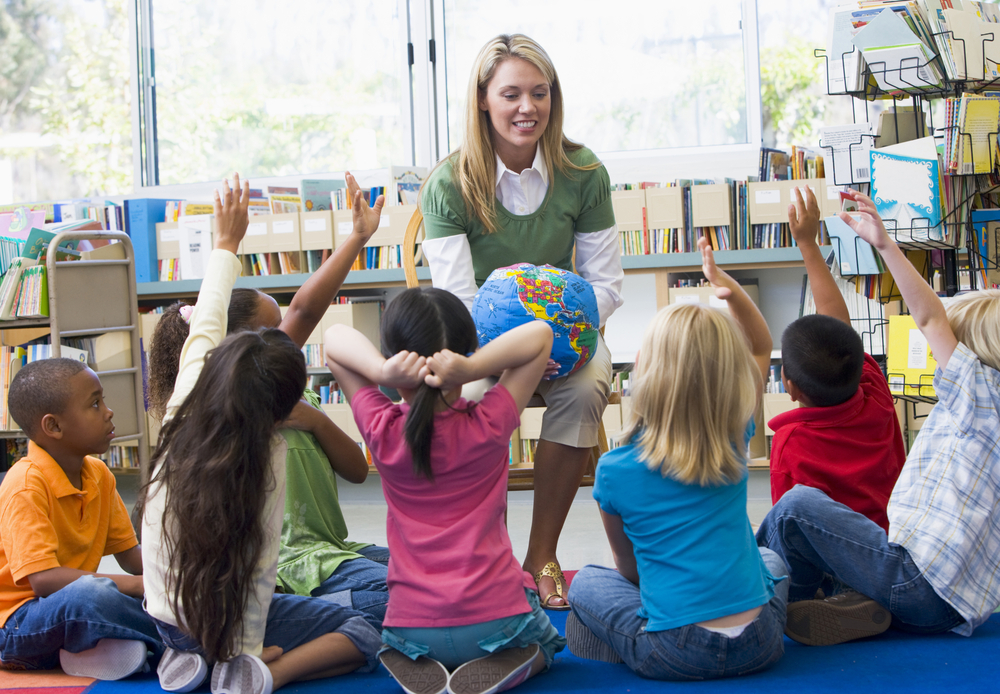
You’ve probably already spoken to your child about the fact that they will soon be heading to kindergarten. However, at this tender age, they may not have fully grasped what this actually means. A visit to the school may help!
Most schools have scheduled tours during which parents and their kids can see the facilities and help familiarize children with the new school, teachers, and everything else in-between.
During such a visit, don’t be afraid to ask your child’s teacher how you can further help your child prepare at home. They’ve been doing this for a while, so they probably already know a few tips and tricks to help kids transition better into their new school.
2) Practice Self-Care Skills

A lot of essential self-care skills are needed for children in kindergarten. This includes being able to use buttons, tie or velcro their shoes, and wipe their mouths after eating.
Your child may already be comfortable with a few of these. However, it’s always a good idea for them to continue practicing these self-care skills, especially during the weeks leading up to the big day.
3) Phase Out Nap Time

Children will naturally quit napping during the day at different ages. So, if your young learner has reached this part of their growth and development, you can move on to the next point on our list.
If, however, your child is still fond of their daytime naps, don’t worry because you’re definitely not alone. The National Sleep Foundation highlights that children’s nap times between two and five years old gradually decrease until they disappear altogether.
Many factors influence this, including a child’s energy levels, how active they are during the day, parental preferences, and cultural expectations.
For kids who are still napping, there are many methods to use to phase out naps. One of the most popular ones is to gradually decrease nap times until kids eventually don’t need them (coupled with ensuring that they head to bed earlier so they get a full night’s rest).
4) Develop Night and Morning Routines
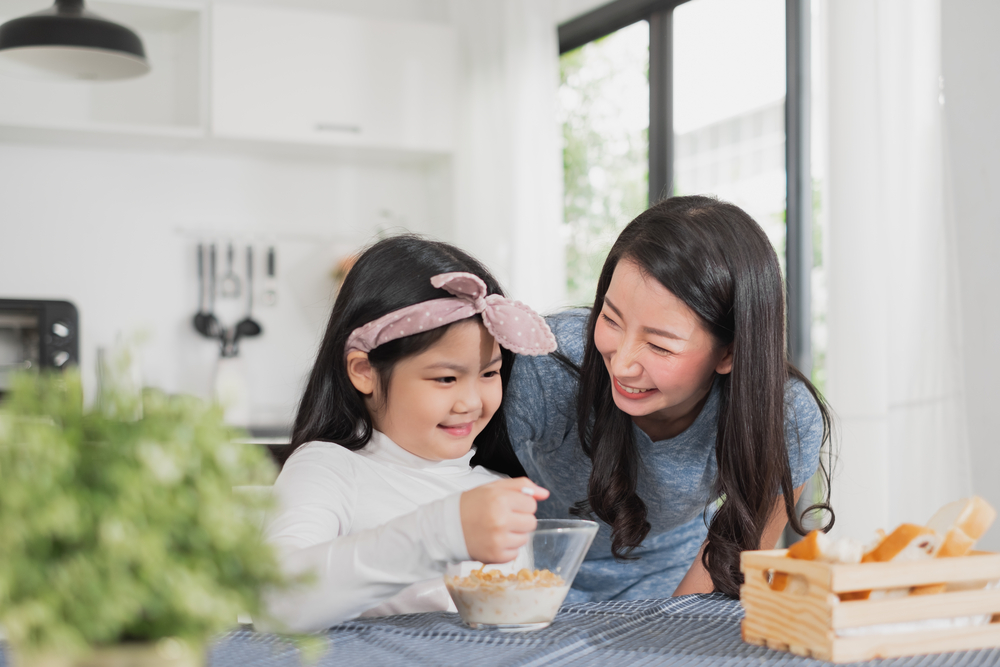
Starting school is often challenging because children need to adjust to early mornings after a lazy summer period. This dramatic shift in their daily routines can be difficult to adapt to.
What can help make the transition easier is to practice and develop night and morning routines before the semester starts. This includes going to bed early, getting up at around the same time each day, helping them get dressed, and having breakfast.
5) Tell Your Child What To Expect
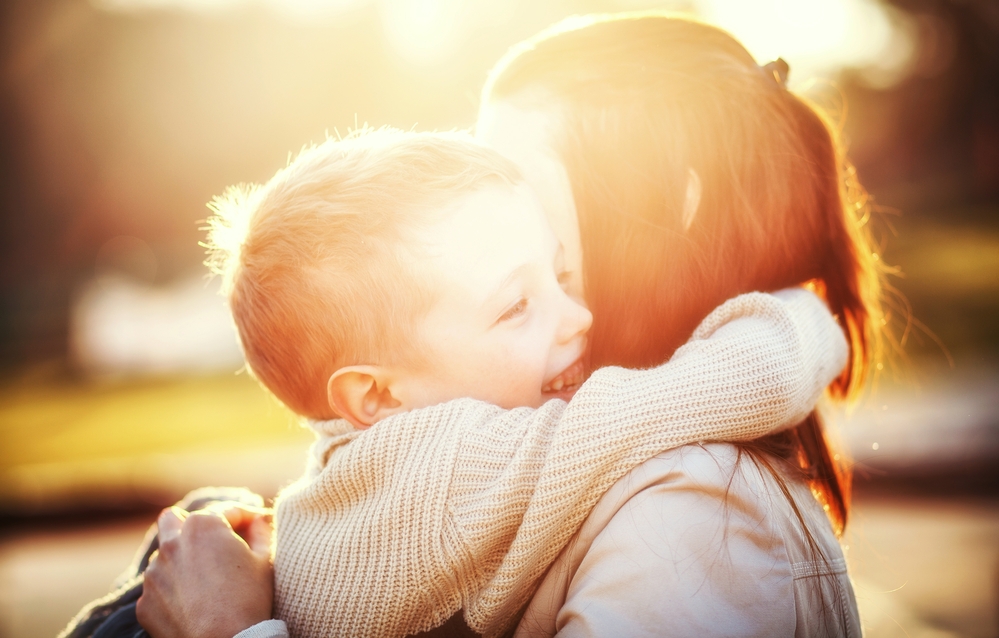
It may seem simple, but sometimes, the best way to prepare a child for something new is to sit and chat with them about it.
During your chats, use kid-friendly language so that your child can get an idea of what to expect. This can be especially helpful if your child didn’t attend preschool or you’ve been homeschooling them.
Having chats about the exciting new journey may help them calm their nerves and realize that there’s nothing to worry about. And remember, kindergarten readiness is a journey!
6) Read About It
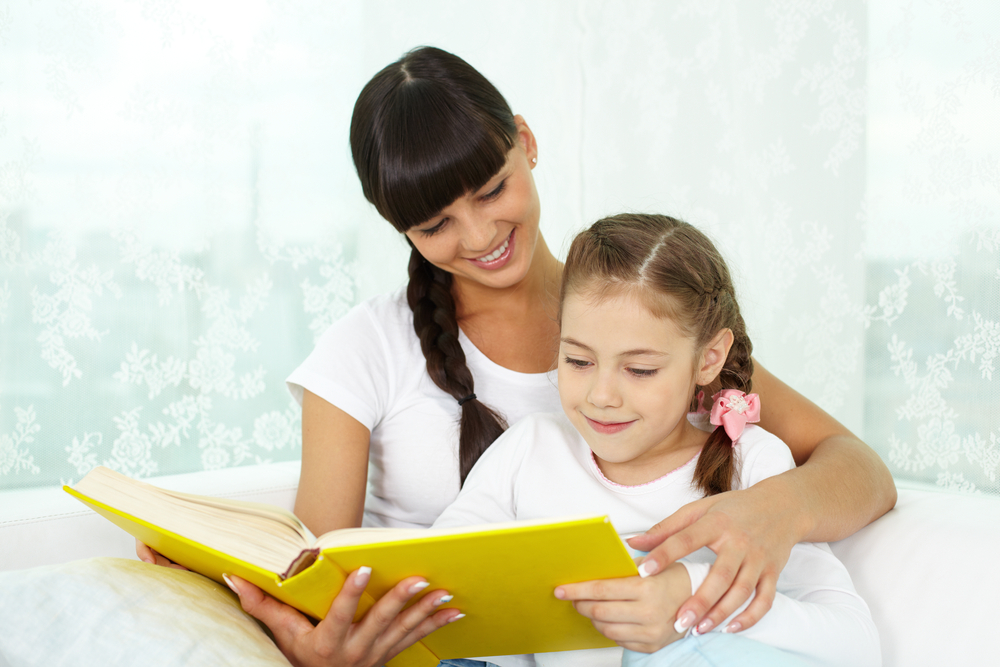
Our previous point involved speaking about kindergarten. This point on our list can re-emphasize some of what you’ve spoken about with your child in a fun and entertaining way.
Children often love listening to stories, so why not carefully select books that can help them understand more about what the fuss is all about?
There are lots of books to choose from. Here’s a list of a few that we love:
- Look Out Kindergarten, Here I Come
- Countdown to Kindergarten
- I Love You All Day Long
- The Kissing Hand
7) Shop Together For School Supplies
Whether or not school was your favorite place growing up, there was always something special about getting new school supplies.
The new backpack, lunch box, pencil case, and crayons might have made you feel special and finally get excited about the year ahead.
You can help your child get into an optimistic mood by shopping for school supplies together. Encourage them to pick out their own supplies, and when you get back home, you can also customize them so they are really unique.
8) Get Social
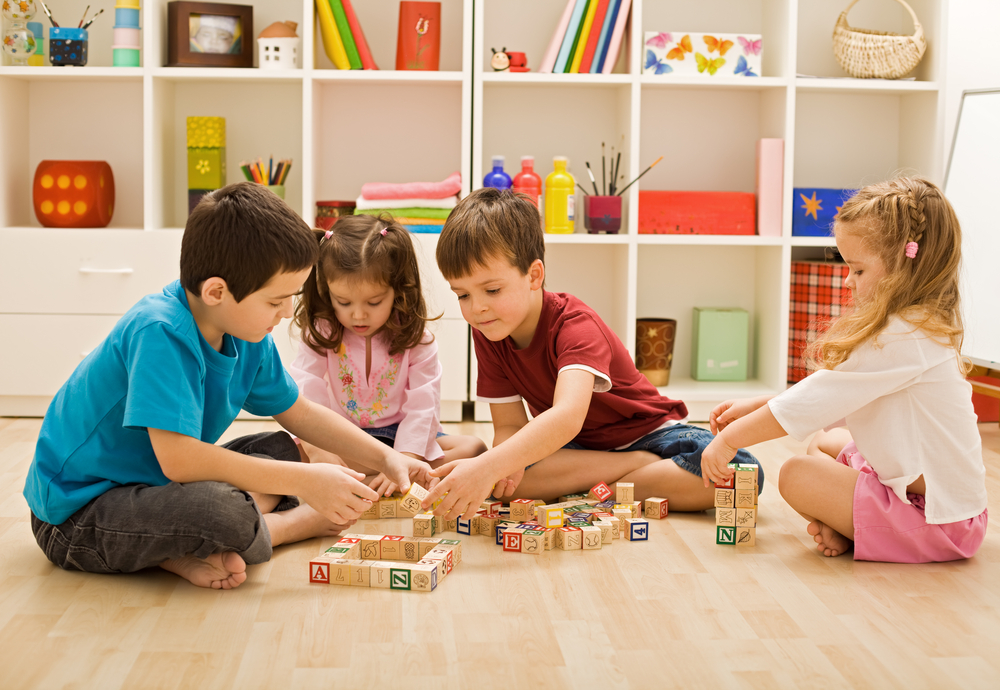
One of the best things about kindergarten is that it helps children make new friends and learn how to get along with many different people.
If your child struggles to interact with others, then it’s time to focus more on helping them develop these important social skills. You can achieve this by arranging playdates with peers of similar ages.
If your child will be virtually schooled, you can also arrange virtual playdates. These can be extremely helpful in familiarizing your child with the desk and computer setup they’ll soon be using.
In addition to arranging playdates, you can also help prepare your child for social interactions by modeling things such as maintaining eye contact, showing interest when a person is speaking, and asking questions.
Kindergarten, Here We Come!
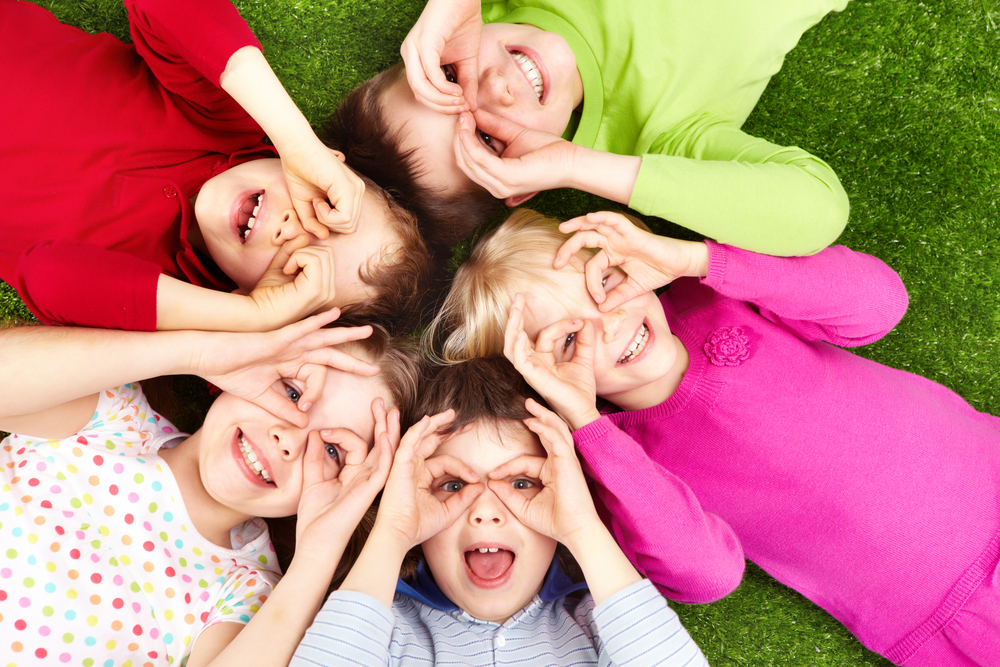
Kindergarten readiness is an exciting period for both kids and parents. This is the start of a very long but amazing school journey! So, it’s understandable that you might be concerned about whether your child is ready for this big step.
From our guide, we hope you understand some of the key skills your child will need in kindergarten and how to help them acquire those skills.
(But remember that children are unique and develop at different rates. It’s perfectly normal for them to be strong in certain areas and weak in others.)
Another quick tip to ease the transition: Send your kindergartener notes to open at school. These can be as simple as a heart with “I love you” written underneath. Your child will enjoy being able to feel connected to you even while they’re away!
To help your child continue developing other essential skills that can help them thrive in kindergarten and life, check out the HOMER Learn & Grow app.
,


